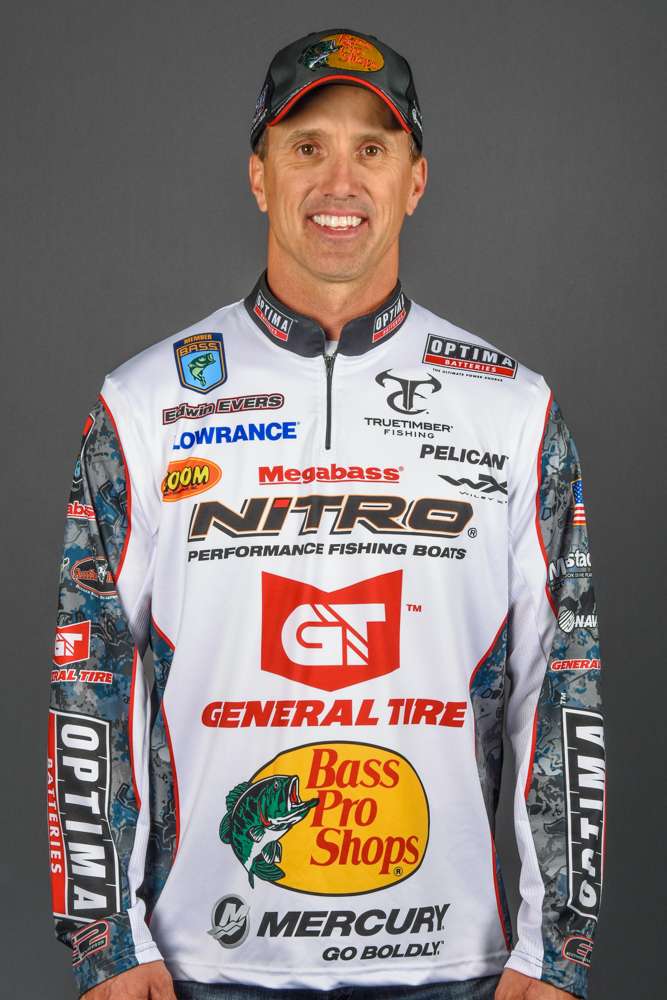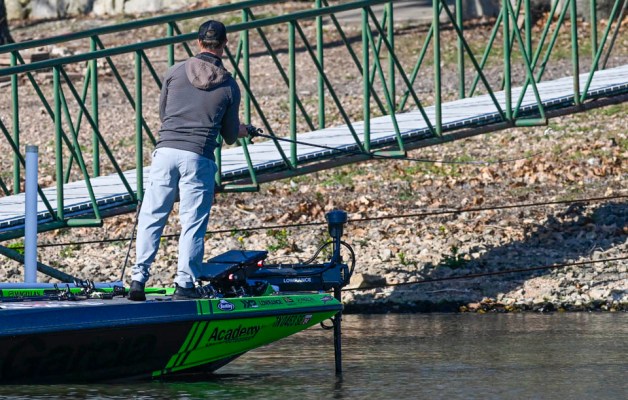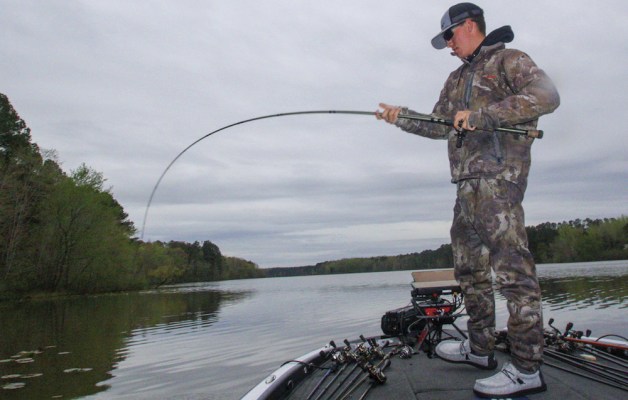There are a lot of theories and philosophies about how you should approach a bass tournament. Some anglers believe in going for the win no matter where or when they’re fishing. Others look for the win when conditions are right for them and try to salvage some points and a check when they’re not.
Luckily, there’s only one meaningful goal at any bass tournament, and that’s to win as much money as you can to provide for yourself and your family. Anybody who’s not looking at it that way, is not a professional.
At the Toyota Bassmaster Angler of the Year Championship at Bays de Noc in Michigan, I will definitely have that goal — to provide for my family — but my approach is going to be dictated by the format. And the Championship has an unusual format.
First of all, every angler in the field is guaranteed at least a $12,000 payday, and there are no dedicated entry fees for this tournament. What we’ve already paid in Elite Series fees, plus what Toyota is offering, makes up the prize pool. How much an angler earns is not determined by where he finishes at Bays de Noc, but by where he finishes in the overall AOY standings for the year.
I’m currently in 16th place in the AOY standings, and Ken Duke (B.A.S.S. Senior Editor) tells me that from there I can’t fall out of Bassmaster Classic contention. Even if I’m last at the AOY Championship, I’ll qualify for the 2015 Classic. That’s good to know and helps me plan for the tournament.
It’s also true that I have no chance to win the AOY title this year. So that’s not part of the equation.
If I stay in 16th place — don’t move up or down — I’ll earn $15,000 in AOY money. If I move up, I gain $1,000 for every place in the standings. The best I can finish is ninth, and that can only happen if I do extremely well and the guys between me and that spot struggle.
If I move down, I only lose $1,000 unless I fall to 22nd or worse. And I lose just $2,000 if I finish between 22nd and 25th. From 26th to 50th, everybody gets $12,000, so I’d lose $3,000.
With a payout structure like that and the position I’m in, I have every incentive to take some chances and try to move up as far as I can. That’s not true for everyone in the field. There are some anglers who are in a position with more to lose than gain, especially if they believe Bays de Noc does not suit their skill set very well.
Those guys should be conservative, pick their shots and not take any big risks. That’s the best way to maximize their earnings, and it’s pretty much the opposite of my situation.
Honestly, I think my position is a lot more interesting and a lot more fun. Because I’m trying to jump up as many places (and as many dollars) as I can, I’ll be taking some chances. At Bays de Noc, that probably means making a long run and fighting some rough water in order to get to a better group of fish than the guys playing it safe or staying close to the ramp.
It means hoping that the weather is just bad enough to discourage the other guys from taking a chance; that the wind is blowing just hard enough to make them decide it’s not worth it. Of course, if the weather’s too bad or the wind is too strong, that would keep me close, too. I’m not going to risk my health or life for a few thousand dollars.
To do really well at Bays de Noc, I think it’s going to take 20 pounds a day. That’ll be my target until I learn something different. Every day of practice and every day of competition is a lesson, and the guys who learn something every day are the ones who do the best.





